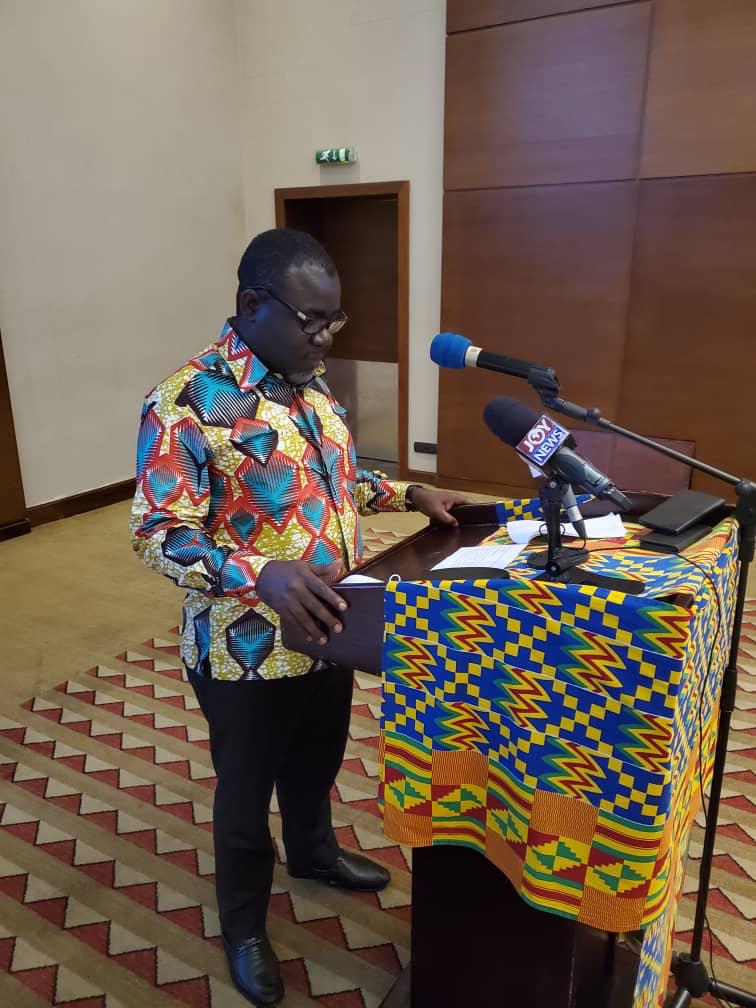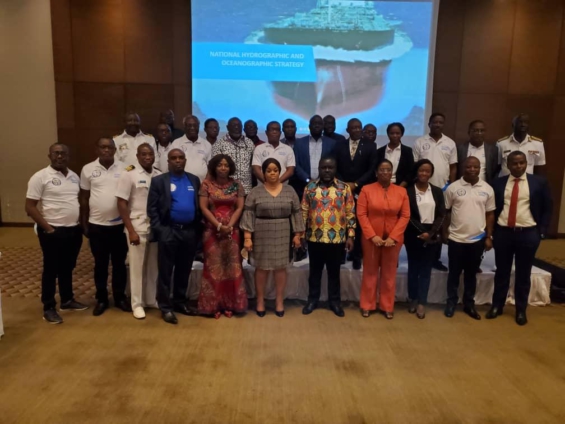The Transport Minister, Kweku Ofori Asiamah, has charged players in the maritime business to collaborate effectively and bring together all existing industry data to update Ghana’s nautical chart.
According to him, the West African nation’s nautical chart at the moment, comes mainly from the port and patrol activities, a situation he noted, requires further improvement.
Nautical Chart, according to Oceanservice, is a map that depicts the configuration of the shoreline and seafloor.
It provides water depths, locations of dangers to navigation, locations and characteristics of aids to navigation, anchorages, and other features. It is one of the most fundamental tools available to the miner.
“Fortunately, activities such as exploration of oil and gas in our maritime domain generate hydrographic data, hence, the need to consolidate all existing data for the update of Ghana’s nautical chart”, he noted.

He added, “We must acknowledge the enormity of the task and equally be motivated by the overwhelming benefits we stand to gain through the availability of relevant hydrographic data for the emerging blue economy”.
Mr Asiamah made this observation in his keynote address at this year’s World Hydrography Day, which was celebrated by players in the maritime industry in Accra on Monday.
The event was under the theme '100 years of international cooperation in hydrography' and was meant to highlight hydrography's past, present, and future.
World Hydrography Day is celebrated worldwide every year on June 21 to emphasise hydrography and the need for multilateral cooperation and effective collaboration in data exchange, charting and standard development regarding the marine environment.
Hydrography is a branch of applied sciences that largely deals in the measurement and description of the physical features of oceans, seas, coastal areas, lakes and rivers.
It also includes the prediction of changes in the water body for the primary purpose of safety of navigation and in support of all other marine activities and more.
The Transport Minister commenting further, said the knowledge of the shape of the ocean basin and the nature of seabed for instance, is critical to understand water movement within the ocean basin which affect climate and weather patterns as well as tidal and wave action, segment transport and underwater geo-hazards.
Therefore, it is evident and obvious that the absence of relevant hydrographic information may result in negative consequences.
For example, he said, without hydrography, ships cannot sail safely, port cannot be built and operate, no coastal infrastructure can be developed, exploration activities cannot be attempted, no maritime boundary can be delineated.
“There is no doubt that hydrography has played and will continue to play significant role in the development of our marine resources”, he acknowledged. He lauded hydrographers for their enormous contribution to national development.
“I believe when it comes to the exploration of marine resources for national development, the important role of hydrography cannot be downplayed. Throughout the work of hydrographers you are able to measure and describe the physical features of oceans, seas, lakes and rivers as well as the prediction of their change overtime to facilitate navigation and safety and support other marine activities including security and defense, scientific research and environmental protection”, he professed.
Touching on Ghana’s status regarding the International Hydrographic Organization (IHO), Mr Asiamah said the former British Colony, as a party to the United Nations Convention on the Law of the Sea, has taken steps to ratify the Convention in International Hydrographic Organization since March 2019.
The country, he noted, is the 92nd member state to have ratified the IHO Convention and the 11th on the African continent.
This is further boosted by the opening of the National Hydrographic Office (the local chapter of the IHO) under the auspices of the Ghana Maritime Authority (GMA) in 2020 following the establishment of the National Hydrographic and Oceanographic Committee in 2015, he announced.
The NHO, among other functions, Mr Asiamah added, collate and process all hydrographic information for the production of charts and dissemination of maritime safety information for member organisations such Ghana Ports and Harbours Authority (GHPA), the Volta River Authority (VRA), Ghana National Petroleum Commission, Petroleum Commission (GNPC), Fisheries Commission, Lands Commission, Environmental Protection Agency (EPA), as well as academic institutions.
He assured the international community of Ghana’s commitment to continue putting in place the necessary mechanisms to build national hydrographic capacity and implement the recommended practices of international hydrographic organizations.
Latest Stories
-
‘No child left behind in Free SHS’ – Akufo-Addo declares
2 mins -
MMDAs tasked to pay more attention to TB cases
3 mins -
2024/25 GPL: Defending champions Samartex suffer second consecutive loss as Basake Holy Stars wins 1-0
6 mins -
National Peace Council assures public of violent free elections
15 mins -
Agenda 111 to be discontinued if NDC comes to power – Akufo-Addo
25 mins -
Mahama begins 3-day tour of the Western Region today
30 mins -
NCCE holds Parliamentary Candidates’ dialogue at Kumbungu
47 mins -
Akufo-Addo commissions new oil and gas services terminal
48 mins -
Bono East NIB seizes stolen SHS rice, arrests driver
49 mins -
Petroleum Commission gives $3.6bn contracts to indigenous companies
1 hour -
COP29 ends with $300bn annual deal to fight climate change
2 hours -
Singer absolutely terrified of Diddy, lawyer says
2 hours -
Texas schools can now teach Bible-based reading lessons
2 hours -
South African anti-apartheid writer Breytenbach dies
2 hours -
One-million-dollar crop insurance premium paid for farmers
2 hours

